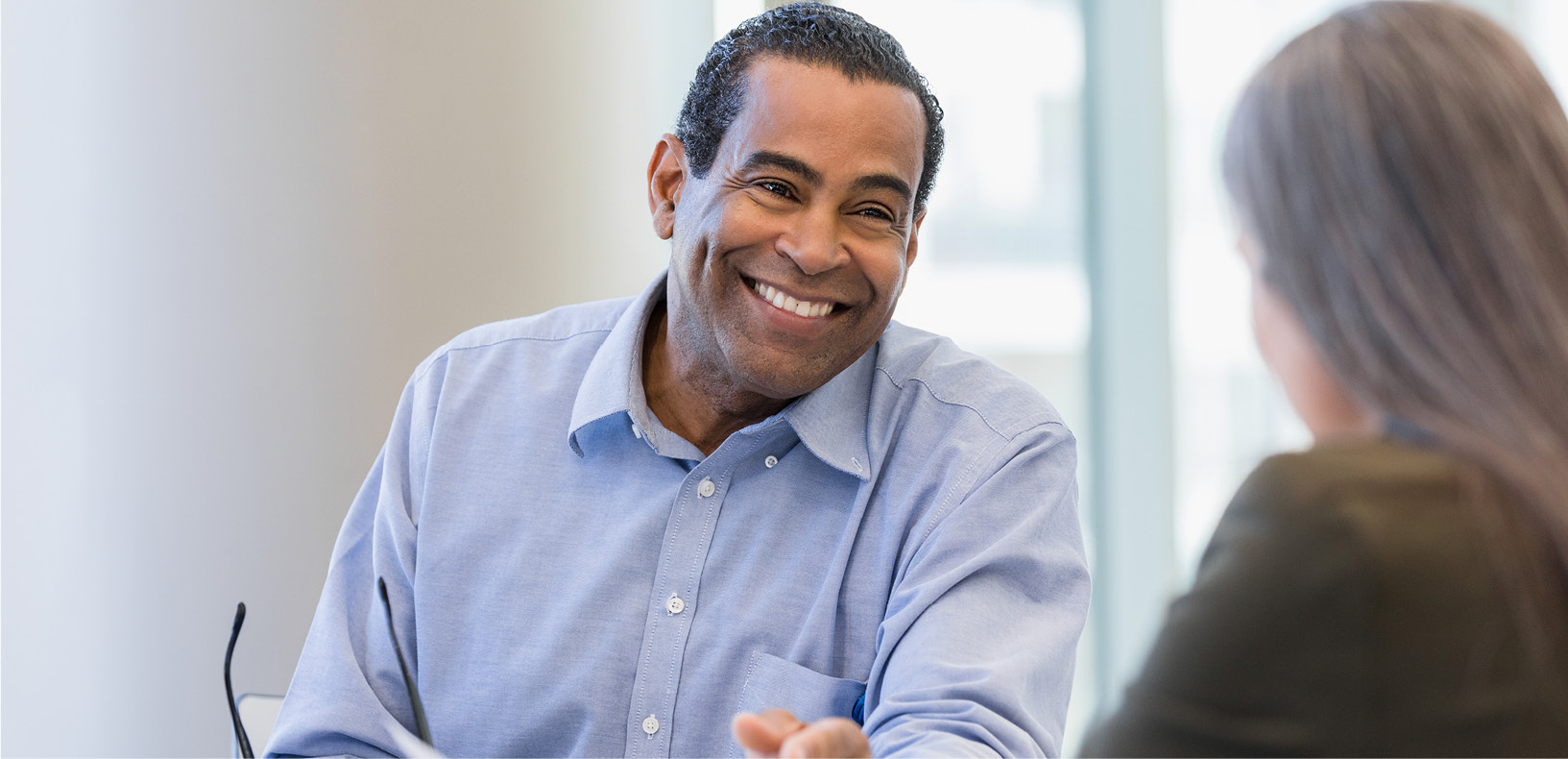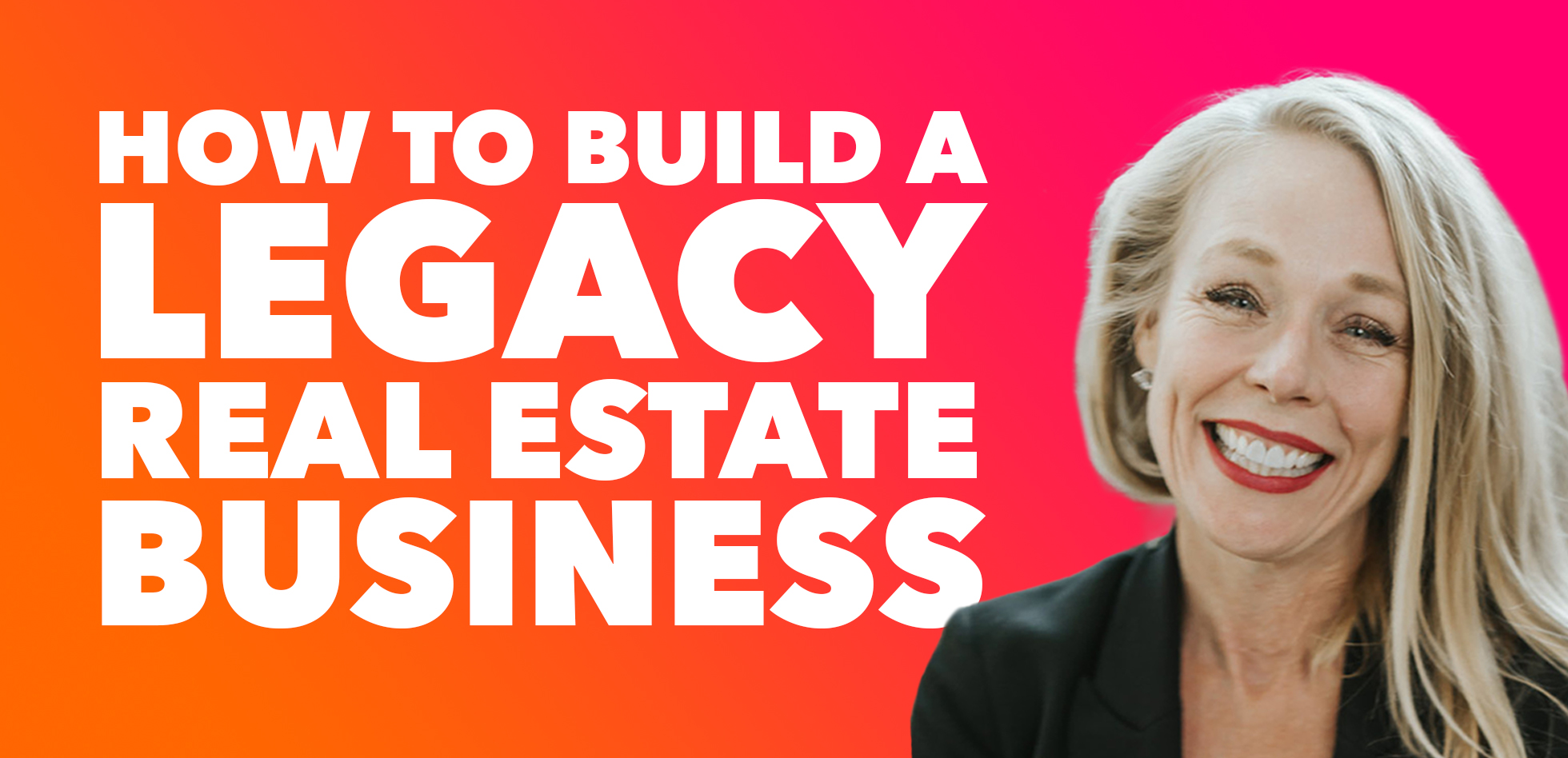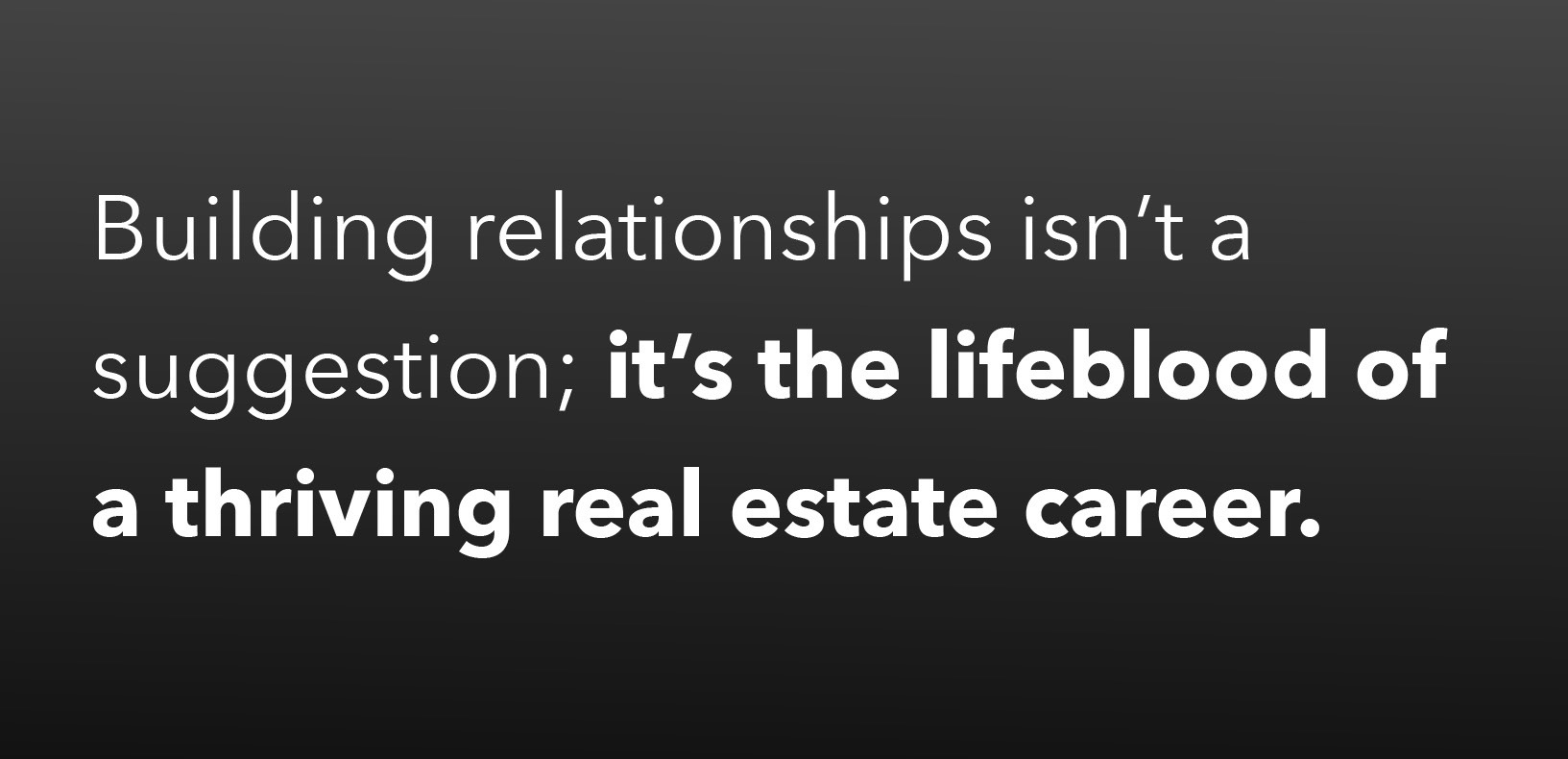Here are four ways to secure your place in a rapidly evolving industry and remain an invaluable asset central to the process of buying and selling real estate.
In the first of this two-part series on the future of real estate agents, I referred to a number of events that have brought us to . . . well, here.
“Here” is where agents, both new and veteran, are trying to figure out the best way to succeed in real estate because it’s become painfully obvious that what was working is no longer sufficient—you can feel it in the air. The NAR lawsuit may just be the tipping point, but if the industry doesn’t make some sweeping changes soon, agents are going to suffer for it.
But agents shouldn’t wait for change to come to them.
All signs point to the future of real estate being owned by career agents who are grounded in professionalism, staunchly invested in providing value to their clients, and committed to continuous learning and improvement. In the first blog, I talked about seven tech tools essential for agents to adopt to remain competitive. Here, I discuss four strategies they’ll need to implement to secure their place in a rapidly evolving industry and solidify their position as invaluable assets central to the process of buying and selling real estate.
1. Specialize in a niche market
The temptation to remain a generalist is typically rooted in the fear that if you don’t make yourself available to everyone, you’ll miss out on opportunities. For those who’ve only recently gotten their license, don’t have a sizeable sphere, or perhaps only have one or two transactions under their belt, pursuing every opportunity makes sense. After all, to succeed in real estate, you need to build a database of contacts and gain experience, not to mention pay the bills.
But if you’re no longer a novice, then it’s time to select a niche and specialize.
What is a niche market in real estate?
A niche market is simply a subset of the larger real estate market you can narrow your expertise to, such as a specific area, type of client, or category of property. For example, you might choose to work with seniors who are downsizing, focus on a single county, parish, or municipality, or exclusively buy and sell investment properties.
But you don’t have to stop there. You could just as easily divide a niche into even more specialized markets. Take the downsizing example. Rather than working with all seniors, you could decide to work with adult children who want to move their senior parents or other relatives into multigenerational homes.
Why you should choose a real estate niche
Succeeding as a real estate agent is difficult for a host of reasons, not the least of which is that every Tom, Dick, and Harry in the industry basically does the same thing—help people buy and sell homes. By focusing on a specific market segment, you can transform yourself from just another agent into a highly sought-after authority with heightened credibility. And there are many other advantages as well.
You’ll compete with fewer agents
Having deep expertise in a specific niche not only separates you from generalist agents but also reduces your competition. In fact, depending on where you are located, you may be one of very few agents, or even the only one, with your knowledge and experience. Similar to a heart patient with a choice between a cardiothoracic or general surgeon, someone seeking an agent with specific know-how is more likely to select one who focuses on their particular needs.
Your clients will consider you a trusted advisor
By concentrating on a niche, you’ll develop a comprehensive understanding of that market segment, allowing you to provide more informed advice and guidance to your clients. This will enhance your clients’ trust in your ability to serve them well. And once you’ve established a reputation, you’re detailed knowledge and experience may just make you the preferred and often referred agent within that niche.
Your marketing will benefit from a tighter focus
A niche allows for more targeted marketing, which should give you more bang for your buck. For instance, you can use longer keywords and appear closer to the top of the results; searches for “real estate agent” will return a slew of results, while “real estate agent for seniors” will likely get you near the top. And you can tailor your advertising to resonate with the highly specific needs and values of your ideal clients. Using strategically written copy and carefully selected images, you’ll increase your ability to attract qualified leads who are a good fit.
Your processes will be more efficient
In developing greater insight and familiarity with a singular type of transaction or client, you can streamline your processes, making you that much more efficient. Imagine, for example, working solely with foreclosures—close a few of these, and you’ll be more competent in evaluating properties, finding clients, working with banks and lawyers, negotiating deals, and handling paperwork in that niche.
You’ll experience greater job satisfaction
Focusing on a niche that is of interest to you may lead you to enjoy your work more. After all, it’s easier to get into the weeds of a topic when you have a personal passion for it. Or you might find gratification in helping clients who are in a specific type of situation (e.g., going through a divorce) or who have a distinctive need (e.g., require ADA-compliant housing).

You’re more likely to succeed in real estate if you have a greater purpose than profit and enjoy the clients you work with.
2. Make service your primary purpose
A serious commitment to making serving your clients the focal point of your business has the potential to not only fundamentally change how you do business but also, in a broader sense, cause you to reimagine what success in real estate might look like.
As I’ve noted, it’s no secret that real estate is changing. Agents who primarily operate as salespeople—who prioritize quick transactions and are eager to move on to the next deal without ever looking back—will lose ground to those who make it their mission to provide long-term service to clients they’ve developed authentic relationships with.
You won’t find a more apt example of the latter than the one presented by broker-owner Amy Stockberger.
Turning service into profit
Amy has developed a business model and the necessary systems to provide lifetime support to her clients and community, and it has paid off in substantial ways. Her agency has ranked #1 in South Dakota for 17 consecutive years, her team is currently ranked #18 in the United States, they have 10% of the market, and 80% of their transactions are from repeat business and referrals.
But what makes Amy’s model brilliantly unique is how it generates additional income beyond commissions—she’s converted what would normally be cost centers into profit centers!
She explains the details of her genius in a Stay Paid podcast episode, but, at the risk of oversimplifying a highly coordinated strategy that extends brand awareness, attracts leads, develops referral partnerships, and generates income (all while serving her clients and community), consider the example of her moving trucks.
From cost center to cash cow
For savvy agents, buying moving trucks isn’t a new idea, but Amy has taken it to another level.
As soon as a client has bought, sold, or invested with her team, they’re given free lifetime access to her branded trucks, equipment, and supplies. She’s that friend with the truck everyone asks to borrow, whether it’s because they cleaned up at a garage sale, need to move their kid to college, or are helping a neighbor dispose of an old household appliance.
But it’s not just clients who get free use of these wheels. She also lends her trucks to nonprofits at no charge, and everyone involved is added to her contact database as a potential lead. And by selling ad space on the back, she’s turned her initial investment into an income-producing asset.

When you can turn your business investments into income-producing assets, you’ll have one more way to succeed in real estate.
With this one method of providing lifetime service to her clients (she describes additional ways in the podcast episode, but you can also read about them here), Amy is able to promote her brand everywhere the truck goes and add to her bottom line, all while earning widespread appreciation and referrals from those who reciprocate her kindness.
In essence, Amy has redefined the real estate agent’s role, transforming it from a transactional position to one of providing lifelong value.
3. Invest in client relationships
I know that being told to nurture your client relationships isn’t a new message, but it’s one that bears repeating. Experience, expertise, hard work, ethics—in real estate, these are simply the minimum requirements for a career as an agent. The unambiguous truth is that prospects and clients have options, which means, all things being equal, they’ll go with the agent who they connect with, understands their needs, becomes their advocate, cares that they are wholly satisfied, and treats them as more than just a commission check.
Nurturing relationships doesn’t have to be hard, yet it does require a commitment to consistency. You need to regularly stay in touch with your clients after the transaction, and you need to make it worth their while to give you their attention. A phone call to “catch up” is useless; they must continue to receive value from their association with you to maintain a strong and lasting bond.
There are many ways to provide value to your clients—here are just three.
Share content that is educational, entertaining, and endearing
Regardless of what you send to your sphere, use only 20% of it to specifically promote your real estate business because if all you do is talk about you, your recipients will soon lose interest—and into the trash your marketing goes. Instead, ensure that 80% of what you provide falls into one of these three categories: educational, entertaining, and endearing.
While producing quality content in a consistent manner is essential for any agent, it can be a struggle. At ReminderMedia, we’re experts at solving this pain point for our clients. We produce unrivaled marketing tools that offer valuable content your sphere actually wants to receive, use, keep, and share. From personally branded magazines to targeted postcards to prewritten social media posts and more, our products produce repeat business and referrals at a rate that’s hard to believe. And because they’re automated, you can save significant time to put toward follow-up and having conversations with your recipients.
Host client events
Client events are a chance to have face-to-face contact with clients, their families and friends, and even the community at large. These events don’t have to be expensive; in fact, we’ve had numerous guests on our Stay Paid podcast who routinely host successful ones that cost them only a few hundred dollars, with some being entirely paid for by their vendor partners.
Check out this blog for event ideas as well as tips for planning and hosting. Or listen to this podcast episode to hear about 12 of the best client events inspired by our guests, including suggestions for maximizing their ROI, using them as opportunities to get reviews, and extending their value beyond the event date.
Clients aren’t just names on a spreadsheet but individuals with their own unique wants and needs. And building relationships with them isn’t a suggestion; it’s the lifeblood of a thriving, scalable business. Relationships that drive repeat business and referrals will save you from constantly having to chase your next lead, offering you the life of freedom that a career in real estate promises.
Stop by and visit
You’ve probably heard about real estate pop-bys; they’re a lot like door knocking, only instead of showing up at a stranger’s door, you’re visiting for a short while with your clients. Succeeding as a real estate agent means staying top of mind, and pop-bys are a low-pressure means of reconnecting and enjoying some face time with the people most inclined to offer you referrals and repeat business.

Visit our Resource Library and download your FREE pop-by tags and labels.
If you haven’t tried pop-bys before—or simply want a way to up your game—this blog provides a complete pop-by strategy that includes planning, budgeting, and best practices. Plus, you’ll get links to free labels, tags, and cards for small gifts. (You don’t want to show up empty-handed.) You can also visit our Resource Library to find all our free pop-by printables and enjoy our impressive supply of free e-books, lead magnets, educational webinars, and more.
4. Commit to continuous education and professional development
Aside from having the basic knowledge and rudimentary skills necessary to do the day-to-day job of an agent, those at the top of their game make it their mission to stay informed about general economic, political, and legal developments, especially ones that affect their local markets. They also take interest in subjects like communication and human psychology, which can give them insight into forming trusting relationships and compelling sales and marketing strategies.

To succeed in real estate, it’s essential that you stay on top of developments affecting the industry and your specific market.
But these agents’ interest isn’t knowledge for its own sake—the best know that to succeed in real estate, they must use what they learn to anticipate changes, identify opportunities, and position themselves as trusted advisors.
Similarly, adopting new technologies, such as those discussed in the first blog of this series, is crucial to staying competitive. It will also enhance your efficiency and give you more of what agents all crave—time to meet with prospects and clients. The initial investment and effort you make to acquire, implement, and learn how to use these tools will pay off in spades down the road.
In addition, honing critical skills will give you an edge over agents who are just getting by. Take steps to:
- Bolster your negotiation skills.
- Refine your presentation and public speaking techniques.
- Learn new networking tactics.
- Improve your time management strategies.
And if you lead a team, add expanding your leadership and management skills to the list.
There is an abundance of ways you can acquire the education and training you’ll need to meet the demands of a fast-approaching future in real estate that promises to separate the wheat from the chaff.
- Earn a certification or designation.
- Join and attend meetings organized by your regional association.
- Attend professional real estate conferences and trade shows.
- Become a member of a real estate organization.
- Participate in local town, chamber of commerce, and school board meetings.
- Read recommended books and trustworthy blogs. (I happen to be partial to this one.)
- Listen to influential podcasts. (Add Stay Paid to your feed for sales and marketing expertise.)
- Get a mentor or coach.
- Enroll in continuing education classes.
- Work with a broker who values and supports training.
- Shadow successful agents, and ask questions.
In a competitive market, agents who prioritize continuous learning and professional development gain a distinct advantage. By investing in yourself, you’ll experience the confidence that comes with professional competence and be able to demonstrate top-tier expertise and stay ahead of the curve, enabling you to build stronger client relationships.
The bottom line
Succeeding as a real estate agent now is arguably the hardest it’s been since the Great Recession of 2007–2009. When the economic situation improves (and it will) and we rejoice again in lower interest rates and more available housing, the landscape that once rewarded real estate agents will be long gone.
To succeed in real estate will soon demand a new breed of career professionals. In addition to remaining abreast of technological trends, the agents poised to grab the lion’s share of deals will be the ones who possess highly specialized knowledge, are relentlessly committed to serving their clients, are deeply invested in maintaining long-standing client relationships, and remain dedicated to continuous learning and development.
Will you be ready to stake your claim?





































